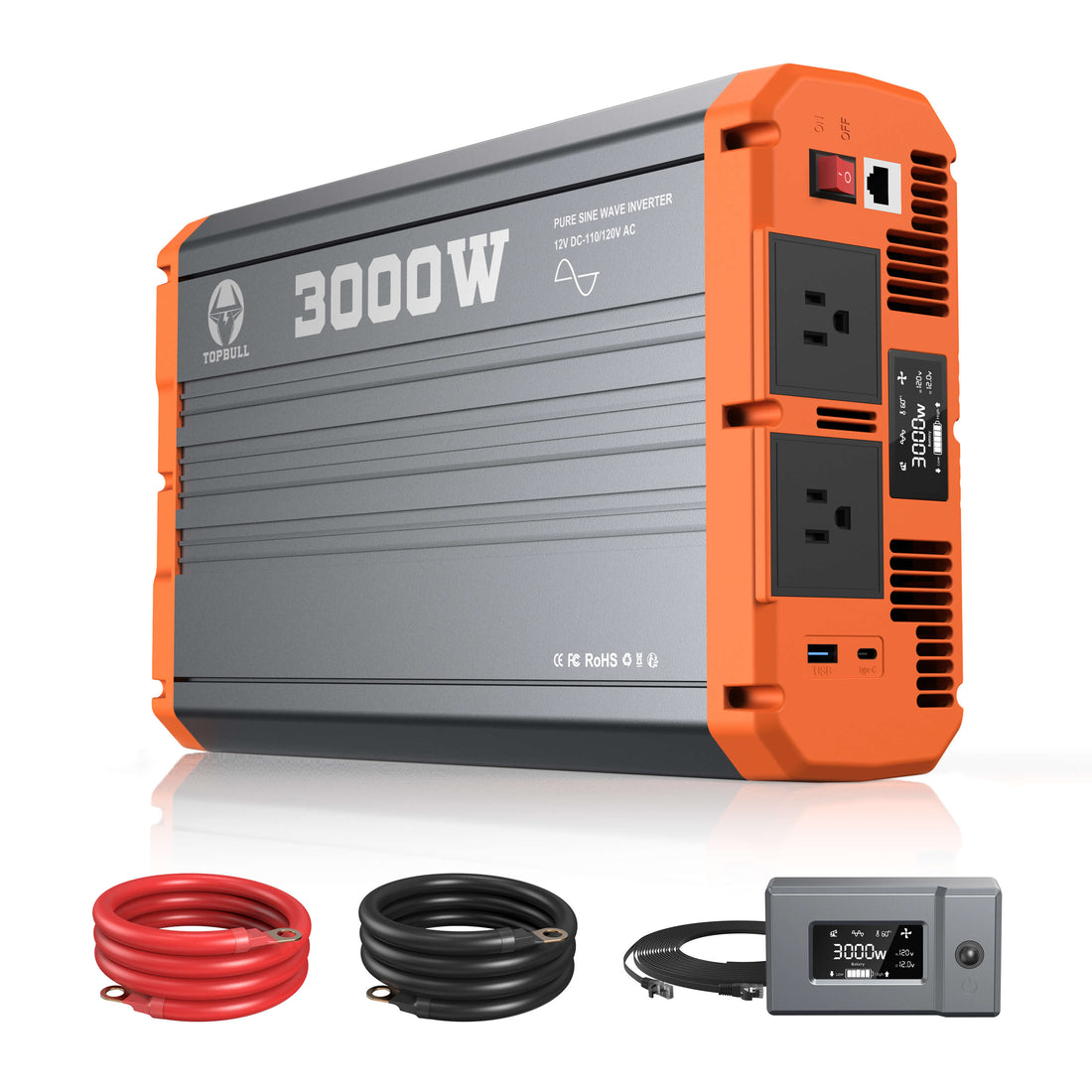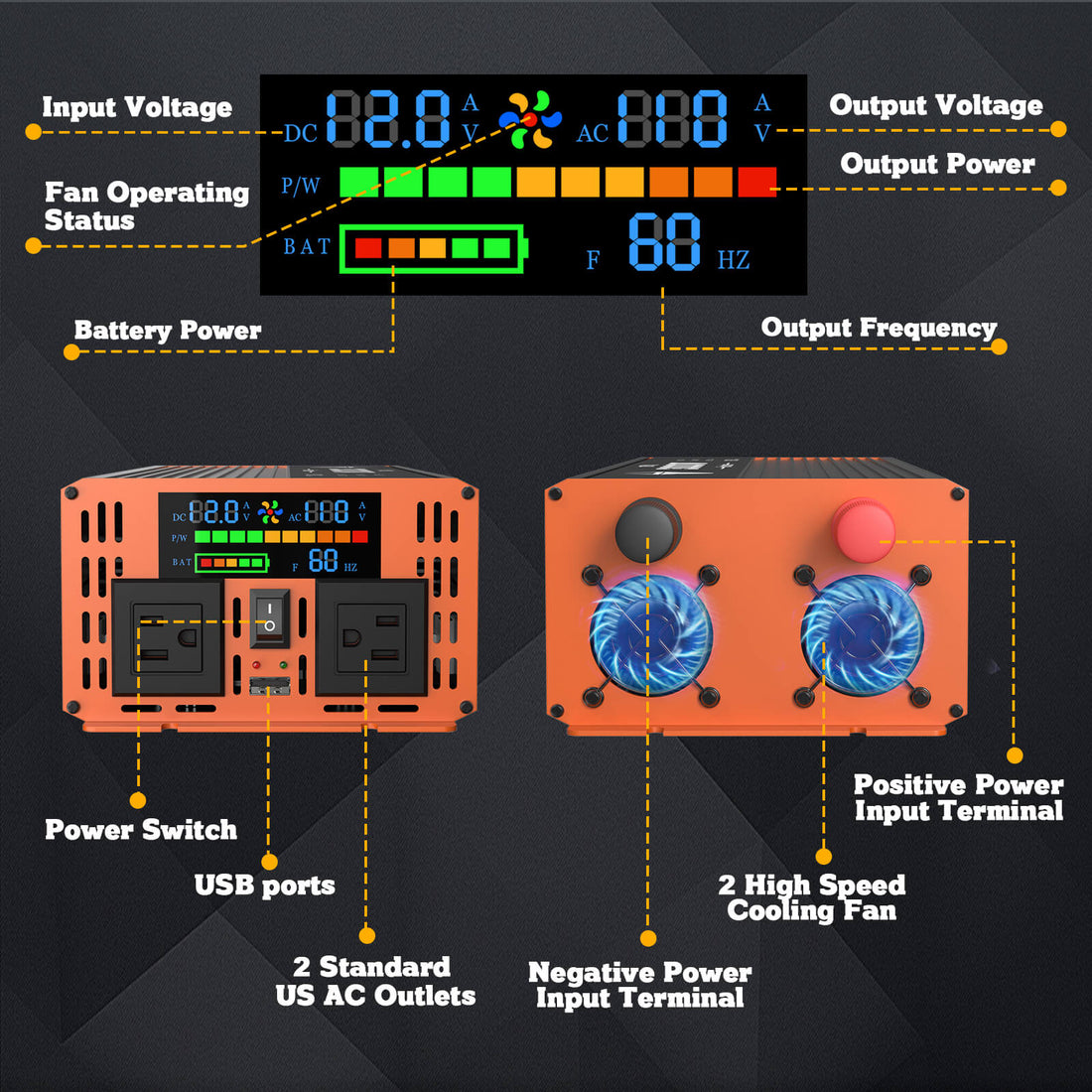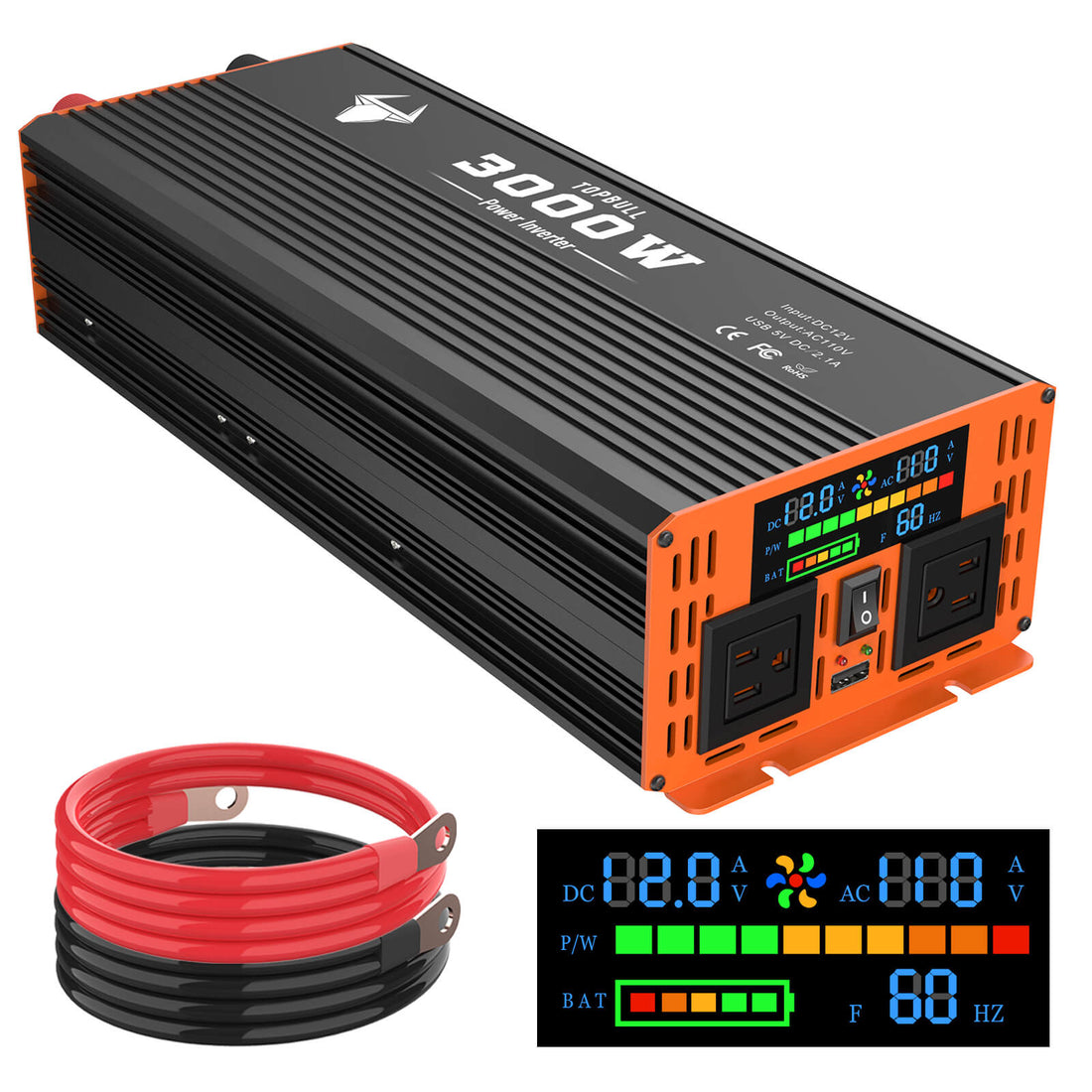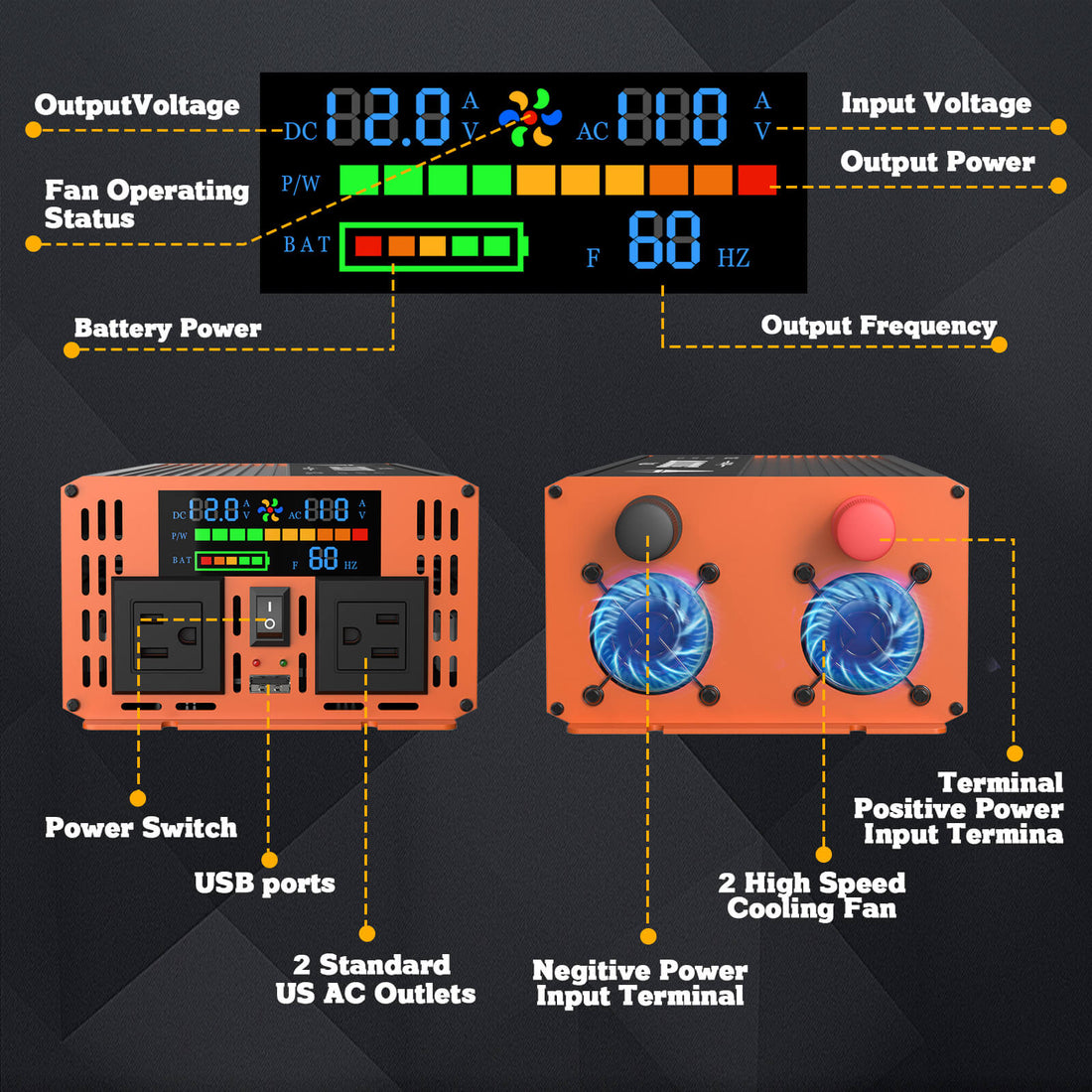Camper inverters
The best inverters for camping can efficiently convert 12-volt DC power into AC power for daily needs, they allow campers to use rice cookers, kettles, laptops, chargers, small fans, lighting fixtures, and a variety of other devices that require AC power. They have the features of efficient conversion, intelligent protection, compactness and portability, which make your campervan trip more free and peace of mind.
With an inverter and the proper power source (e.g., car battery, solar panel, etc.), campers can enjoy a power supply similar to the one they have at home.
Sort by
- Featured
- Best selling
- Alphabetically, A-Z
- Alphabetically, Z-A
- Price, low to high
- Price, high to low
- Date, old to new
- Date, new to old






















